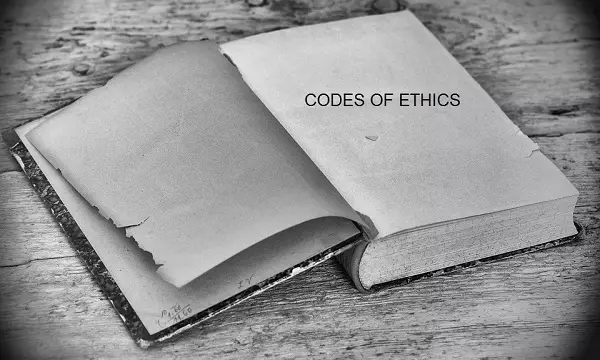
 Data Structure
Data Structure Networking
Networking RDBMS
RDBMS Operating System
Operating System Java
Java MS Excel
MS Excel iOS
iOS HTML
HTML CSS
CSS Android
Android Python
Python C Programming
C Programming C++
C++ C#
C# MongoDB
MongoDB MySQL
MySQL Javascript
Javascript PHP
PHP
- Selected Reading
- UPSC IAS Exams Notes
- Developer's Best Practices
- Questions and Answers
- Effective Resume Writing
- HR Interview Questions
- Computer Glossary
- Who is Who
What are the codes of Engineering ethics?
The engineering societies such as AAES, ABET, NSPE, IEEE, and AICTE have framed these codes of ethics which are helpful to engineers to strengthen the moral issues on their work. The codes of ethics play at least eight important roles such as the following.

Serving and Protecting the Public
Engineers are in a responsible position where trust and trustworthiness, both are essential. A code of ethics functions as a commitment to the profession as a whole that engineers will serve the public health, safety, and welfare. All the remaining ones contribute to this function in some or other way.
Guidance
Codes are written in brief yet effective to offer general guidance to the engineers. More specific directions may be given in supplementary statements or guidelines, which tell how to apply the code. If needed, the assistance is obtained for further specification.
Inspiration
Codes of ethics, which specify a collective commitment towards a profession, helps in motivation for ethical conduct. Actually, these codes make one feel really responsible and proud to be a professional thus motivating towards the commitment one should have towards one’s profession.
Shared Standards
The standards established should be applicable to all individuals, in their particular professions. With the codes of ethics, the public is assured of engineers with a minimum standard of excellence and the professionals are provided a fair way to compete.

Support for Responsible Professionals
The professionals who act ethically have more positive support through these codes. A professional engineer who has the intention to stand by the codes of ethics can have no harm from immoral professional obligations, as he can reject smoothly yet formally. As well, these codes can provide legal support to engineers who are criticized for living up to work-related professional obligations.
Education and Mutual Understanding
The codes which are widely circulated and officially approved by professional societies promote a shared understanding among professionals, the public and government organizations about the moral responsibilities of engineers. These codes prompt discussion and reflection on moral issues.
Deterrence and Discipline
The professionals those who fail to follow the codes exhibit unethical conduct, which is evident from the disobedience. Such an investigation generally requires paralegal proceedings designed to get at the truth about a given charge without violating the personal rights of those being investigated.
This might lead to the expulsion of those whose professional conduct has been proven unethical, which also leads to loss of respect from colleagues and the local community.
Contributing to the Profession’s Image
Codes project the engineers as the professionals of an ethically committed profession, which inspires them to work with great commitment and more effectively to serve the public. It can also win greater powers of self-regulation for the profession itself while lessening the demand for more government regulation.

